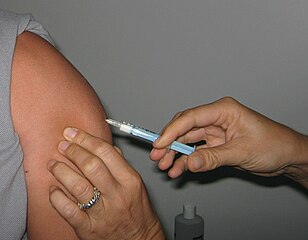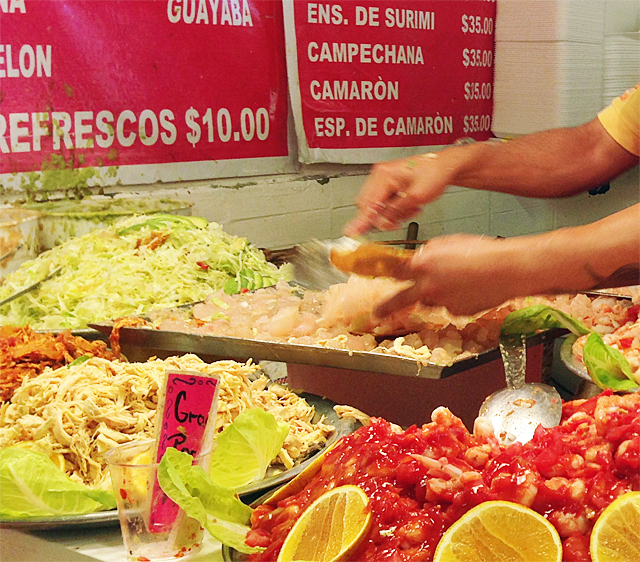
by Phil Paoletta
Whether it’s a mild cold, a stubborn case of the runs, or occasionally something worse, many of us have had the unfortunate experience of getting sick on the road. Illness of any kind can derail or even ruin your trip, which is why it’s important to avoid catching something in the first place. Some of these tips will seem like no-brainers, but you’d be surprised how easily they can fall between the cracks in the whirlwind of travel. Stay mindful, though, and stay healthy.
1. Do Some Basic Destination Homework
You don’t need to have your itinerary fully charted out to get a handle on some travel health basics. You can start by looking at the National Health Service website in the UK or that of the USA’s Centres for Disease Control, which can help you find information on vaccinations you may need, specific travel health issues you may deal with, and some general best practices to keep you healthy at your destination. You can also take a look at the World Health Organisation site to check for any specific health advisories in areas where you’ll be traveling.
2. Consider a Travel Health Consultation
If your research turns up anything that raises questions, it may be worth consulting a physician specialising in travel health, who can offer tailored advice in addition to prescribing certain medications that you may need. For example, if you are traveling to an area where malaria is endemic, prophylactics may well be advisable, and a professional can explain which are available and effective for the particular strain(s) of malaria where you’re going. Travel health centers also provide vaccinations.
 3. Get All Required or Recommended Vaccinations
3. Get All Required or Recommended Vaccinations
Speaking of vaccinations, don’t leave home without them. First make sure you are up to date with all of your regular shots, such as hepatitis A and B and tetanus, among others. Then check with your travel health doctor to see what specific vaccinations you may need for your trip. Some countries require a Yellow Fever vaccination just for entry. Other vaccinations may not be required, but you should heed any recommendations from your travel health doctor. Typhoid, for instance, is present in many developing world countries.
4. Pack a Basic Travel Health Arsenal
While you don’t need to go overboard, you should travel with a basic first-aid kit. You’ll want to carry a selection of bandages, sanitising wipes, antibacterial and anti-itch ointments, and a few over-the-counter drugs, such as ibuprofen for pain and inflammation and diphenhydramine (Benadryl) for allergic reactions. A backup supply for any prescription medications is not a bad idea, and you should always carry documentation describing any medical conditions you may have.
5. Get Into a Hand-washing Routine
No matter where you travel, most illnesses can be traced back to poor or nonexistent hand-washing. Good old soap and water have got you covered, if you use them correctly. Want to wash your hands the right way?
- Wet your hands, apply soap.
- Lather and scrub for a good 20 seconds (sing the “Happy Birthday” song to yourself if you can’t be bothered to count).
- Don’t forget to scrub all over. Get in between those fingers, on the back of your hand etc.
- Rinse thoroughly.
Hand-washing is particularly important before meals and after using the bathroom. No soap or water? Hand sanitiser can do the job, but a sanitising wipe is even better, as it allows you to remove dirt instead of just moving it around.

6. Watch What You Eat and Drink
If you don’t want to spend your trip sitting on the toilet, pay special attention to what you put in your mouth. Waterborne illnesses are often present in developing-world countries, and in many places you may not be able to drink the tap water (find out where at CanIDrinktheWater.org). If you have any doubts, stick to bottled water or use a portable purifier to treat your H2O.
You also don’t want dining out to be a hazardous activity, so keep these tips in mind:
- If it’s a fruit or vegetable, make sure it has been thoroughly washed, peeled or boiled.
- Eat at popular establishments with high customer turnover. The food is more likely to be safe in these places and the high turnover assures that it won’t be sitting out for too long.
- Pay attention to hygienic conditions at street food stands. If it doesn’t look like a good idea, it probably isn’t.
- Eat food served hot – and if it’s not, don’t be afraid to send it back. A lukewarm meal may be harbouring bacteria that you do not want in your gut.
Even apart from the food safety issue, you’ll want to keep your diet from getting too out of kilter. Poor nutrition can make you sluggish and prone to illness. Try to eat at least some fresh fruits and veggies throughout the day; it’ll give your immune system a boost and keep your energy levels up. If the local cuisine rarely features fresh produce, pop into a supermarket and pick up a few things you can snack on. And of course it goes without saying that when it comes to alcohol, overdoing it is bad for both the immune system and your judgment (and therefore potentially your health).
7. Don’t Overdo the Schedule
You are of course not superhuman. So though you might be tempted to cram as much as you can into your itinerary, you’re not going to much enjoy those museums and UNESCO World Heritage Sites if you make yourself sleep deprived and with a cold coming on. Pace yourself and budget enough time for some rest and relaxation. Travel is a time for learning and discovery, not exhaustion and stress. Don’t we get enough of that in our regular lives?
In future posts I’ll be elaborating on more ways to guard your health while travelling. In the meantime, stay healthy and keep flying!
(For tips on making your flight comfier and healthier, click here.)
Phil Paoletta lives and travels in West Africa, where he teaches camel drawing while running a small restaurant in Abidjan, Ivory Coast. You can follow him at PhilInTheBlank.net, and he also offers travel health advice on his site SickOnTheRoad.com.
photos | istockPhoto, Grook Da Oger, David Paul Appell

